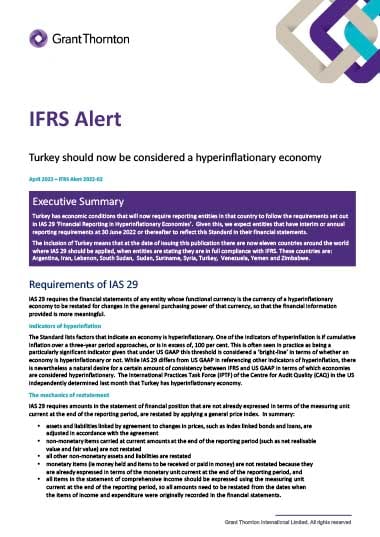-
Sector Focus
We specialise in the investment management industry offering audit, assurance, tax and corporate recovery and liquidation services.
-
Personal Tax Services
There are many tax rules that can affect you personally and therefore which will have an impact on your personal wealth.
-
QI Compliance
Qualified Intermediaries (QI) have to take action now to perform a Certification to the Internal Revenue Service (IRS).
-
Download our tax brochures
The tax teams at Grant Thornton aim to provide the Channel Islands with a premier tax advisory service both to private clients and the business community including the investment management industry.
-
Jersey Tax Return
A secure sign in page to file Jersey Tax Returns through the Grant Thornton tax portal.
-
ESG
ESG can either be seen as a risk management tool or an opportunity, either way it is imperative to your business, whatever your size and whether you are listed or not.
-
Professional Services
Business and accounting support for professional services
-
Finance Industry
We work with a broad range of clients and their financial stakeholders, from entrepreneurs in the early days to fast growing and established businesses to public companies competing in global markets.
-
Local Businesses
Businesses come in many shapes and sizes – from innovative start-ups to long-established local businesses. But however large or small your business, the chances are you face similar challenges.
-
Corporate Insolvency
Our corporate investigation, Guernsey liquidation and recovery teams focus on identifying and resolving issues affecting profitability, protecting enterprise value and facilitating a full recovery where possible.
-
Corporate Simplification
Redundant corporate entities can over complicate group structures and waste thousands of pounds in unnecessary costs each year. 46% of the c.15,500 companies controlled by the FTSE100 are dormant and it is estimated that the average cost of administering dormant companies is between £3,500 and £5,000 per company, per year.
-
Debt Advisory
Our Debt Advisory team provides commercial and financial debt advice to corporate entities and public sector bodies in a range of sectors. Our engagements include advice on stand-alone transactions and solutions or as part of an integrated business plan, in both the project and corporate arenas.
-
Exit Strategy Services
We offer a tailored methodology designed to enable a company to be reviewed in a group context to assess ways to maximise its value.
-
Financial Restructuring
For companies challenged by under-performance we work with management teams, shareholders, lenders and other stakeholders to implement financial restructuring solutions creating a stable platform for business turnaround.
-
Strategic performance reviews
Strategic performance reviews analyse the key drivers of performance improvement. Our specialists utilise a framework to evaluate financial and operational options and to identify solutions for businesses and their stakeholders.
Turkey has economic conditions that will now require reporting entities in that country to follow the requirements set out in IAS 29 ‘Financial Reporting in Hyperinflationary Economies’.
Given this, we expect entities that have interim or annual reporting requirements at 30 June 2022 or thereafter to reflect this Standard in their financial statements.
The inclusion of Turkey means that at the date of issuing this publication there are now eleven countries around the world where IAS 29 should be applied, when entities are stating they are in full compliance with IFRS.
These countries are:
Argentina, Iran, Lebanon, South Sudan, Sudan, Suriname, Syria, Turkey, Venezuela, Yemen and Zimbabwe.
Requirements of IAS 29
IAS 29 requires the financial statements of any entity whose functional currency is the currency of a hyperinflationary economy to be restated for changes in the general purchasing power of that currency, so that the financial information provided is more meaningful.
Indicators of hyperinflation
The Standard lists factors that indicate an economy is hyperinflationary. One of the indicators of hyperinflation is if cumulative inflation over a three-year period approaches, or is in excess of, 100 per cent. This is often seen in practice as being a particularly significant indicator given that under US GAAP this threshold is considered a ‘bright-line’ in terms of whether an economy is hyperinflationary or not.
While IAS 29 differs from US GAAP in referencing other indicators of hyperinflation, there is nevertheless a natural desire for a certain amount of consistency between IFRS and US GAAP in terms of which economies are considered hyperinflationary. The International Practices Task Force (IPTF) of the Centre for Audit Quality (CAQ) in the US independently determined last month that Turkey has hyperinflationary economy.







